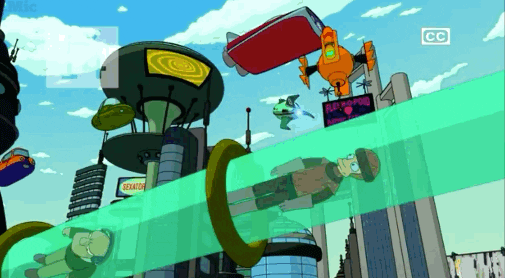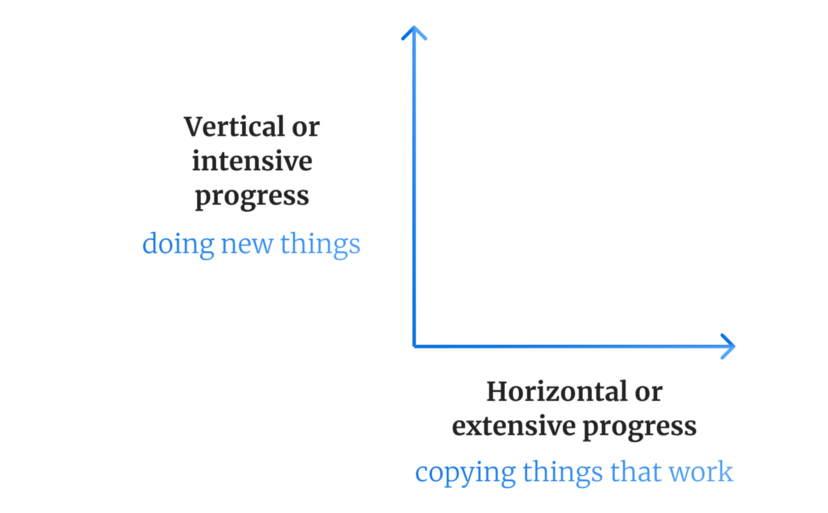This week, we're going on a quest. A quest for truth. All of us have some perceptions related to everything that is in front of us. You see a jam-packed road 🚦 and deduce that its existence is directly related to the heavy rainfall lately. You see a faulty television 📺 and, on inspection, conclude that there must be something wrong with the wiring. You see a unicorn 🦄 and instantly know that you've either received an ungodly thrashing or someone probably spiked your drink at the club. All believable and pretty reasonable assumptions right?
The thing is, all of them are just hypothetical theories that may or may not have any connection to reality. And the problem arises when we start confusing them with the absolute truth. Because once we mix 'our views' with 'the truth', we close our books on that chapter, believing that we have enough awareness about it.
But isn't that a bit counterproductive? And dangerous to some extent? Because the only thing that is worse than no knowledge is half knowledge. What if we actually got to the root of the topic in hand, actually deconstructed the things we know, gathered factual data to downright prove our hypothesis and ventured for new solutions if our original theories bore no fruit? Wouldn't that be a superior way of thinking? 🤔
We'll save you the trouble of answering here. Yes it would be. A 100 per cent, no doubt. And this dear hombres, is what we call 'Thinking from First Principles'. It's what entrepreneurs use to innovate - it's how you find creative solutions to unsolvable problems - for pete's sake, it's how Elon Musk started freaking SpaceX! And today we learn all about it. Excited? You should be 😌.
But what exactly is thinking from first principles?
Everytime you see a new startup succeed, a thought must pop into your restless minds - how do these entrepreneurs come up with these simple-looking yet mind-boggling and supremely-effective ideas 💡 that have the potential to revolutionize the field of their choice? Are they better than us? The second coming of Thomas Alva Edison? Or is it just because they were born with a silver spoon 🥄?
Well, the last point is definitely a bonus we wish we had but it's certainly not the hero of this story 🧝♀️. That credit goes to their way of visualizing a problem. Thinking from first principles. It’s a way to deconstruct your thoughts so you can reconstruct them in a more organized way. With first principles, you chuck away everything you think you know and only keep what's real.
Think of it this way. You know refrigerators are bad for the environment 🏭, because of the CFCs they emit. But since they're necessary to our lifestyle, it's a trade off that we'll have to accept. Now let's apply the first principles formula here. You know for a fact that it's the CFCs that are harming the environment. But how? What exactly are they doing? What causes the refrigerator to emit CFCs in the first place ? Is there a way to limit their emissions?
The moment you start asking yourself these questions❓, you'll start searching for the truth in all the possible directions. You'll start educating yourself in-depth, corresponding to the relation between CFCs and the environment 🌎. You'll start unearthing newer information that'll give you a better view of picture - a wider perspective of how things actually are.
For example, one reason for using CFCs as refrigerants is that they have low toxicity ☣️. Maybe we can use some other environment-friendly compound and try to curb their toxicity levels. Or maybe we could use a better volatile agent ⚡ instead of the CFCs, since that is an important requirement for refrigerants. Cool solutions, right? They’re the result of a 10-minute internet hunt on CFCs. Now, just imagine what you can do if you apply this method to all your problems. Think of all the creative solutions you’ll come up with if you break down what you knew, research on what can be and then build your thinking from the ground up ⬆️. Simply because of the clearer view you would’ve acquired as a result.
(The CFC problem has since been dealt with by the world but you get our point, right?)
And the best part about this approach is, it isn't direct. With first principles, you can actually innovate. So the solution you'll come up with won't simply revolve around banning refrigerators or limiting CFC emissions 💨. Rather, it'll be much more profound and non-linear. It could be as vague as changing the mechanical structure of the product. Because now, you're acting upon the truth. You've gathered all the information about the topic and finally, you're tracing back. With a wider pool of facts, a newer set of innovative ideas is bound to follow 💯.
Sounds cool on paper? Well, it's just as cool when applied in real life. But don't go on our words, go on theirs.
What do some of the greatest minds of all time have to say about this ideology?
Elon Musk
Arguably the most prominent flag bearer 🏁 of the first principles philosophy, Elon Musk has actually built his entire intellectual empire around this ideology. (He talks in detail about his take on the topic in an interview with Kevin Rose). Believing internet, sustainable energy and space exploration to be the three cornerstones 🏛️ for human evolution, Musk ended up cementing his place in all the three fields.
However, SpaceX would not have been possible without the concept of first principles. To further his cause for space exploration 🚀, Musk didn't just buy proven rockets. Instead, he sought out to make the process cheaper and more accessible. He bought the parts, employed experts and built his own rockets in a cost effective manner 💲. As of now, the cost of an average SpaceX launch is $62 million - a fraction of what the $152 million they spend at NASA. The first time a man tried to do things differently - challenge NASA of all organizations - he ended up making the process 59% more efficient. Puts things into perspective, doesn’t it?
If Musk wanted, he could've acquired rockets, hatched a survey plan and set the wheels in motion for his outer-space dream. Instead, he chose to improve the solution at hand, making the next steps 10 times easier. Who knows what future generations can achieve with this technology?
Jeff Bezos
The billionaire tycoon has also leveraged the first principles ideology in a unique way to make Amazon what it is today. His drive to focus on certain fundamental truths of the market to build his e-commerce empire 🏰 enabled him to adopt a far-sighted approach that not only solved the problems of today, but also catered to the needs of tomorrow. Quoted in the book Bold, Bezos says,
In our retail business, we know that customers want low prices, and I know that's going to be true 10 years from now. They want fast delivery; they want vast selection. It's impossible to imagine a future 10 years from now where a customer comes up and says, 'Jeff, I love Amazon; I just wish the prices were a little higher.' 'I love Amazon; I just wish you'd deliver a little more slowly.' Impossible.
Peter Thiel
With his unique Zero to One approach, Peter Thiel has successfully etched his name in the history books of innovation ⚛️. Derived from the first principles ideology, Thiel's approach puts great emphasis on the concept of 'vertical progress', that is, going from 0 to 1. It implies doing something that no one has ever done before, as opposed to the idea of 'horizontal progress', which involves imitating work that has already been done (going from 1 to n).
In order to go from 0 to 1 and achieve vertical progress simultaneously, you have to discover an important truth that very few people will agree upon. You'll have to let go of what you think you know, attain the fundamental truths of what you think you know and then build your way from the ground up. And most importantly, you'll have to let go of reasoning through analogies 🤝. Using proxies or examples to formulate your approach will only lead you to horizontal progress. And we don't wanna do that now, do we?
Bernard Sadow
The inventor of the rolling suitcase 🧳, Bernard Sadow owes the defining moment of his life to first principles thinking. Returning from a vacation, Sadow saw a worker moving a piece of heavy machinery through a wheeled skid 🛞. While it might have been a normal sight to the rest of us, Sadow instinctively connected it to his field of work - the luggage industry. Over time, bags and suitcases had gone through a lot of changes. But the majority of them had been design related, with no significant alteration in the usability of the product.
However, after witnessing the machine-on-a-skid incident, Sadow dropped what he thought he knew about luggage 💼. He started addressing the basic questions about luggage, specifically about its mobility 🛷, but this time, with the wheeled skid in mind. And voila, we got the first rolling suitcase in the history of mankind.
While it seems a simple enough invention in hindsight, we have to consider the astonishing fact that wheels and luggage have co-existed for thousand of years ⌛. Yet, we continued to drag luggage across streets using nothing but brute strength until 1970, when one man actually applied first principles thinking to come up this 'simple' innovation. Better late than never though, right?
By now, you must've grasped the merits that this way of thinking brings to the table. And of course, you don't have to be an inventor 💡 or an entrepreneur to integrate first principles in your lifestyle. You can simply use them to make your day-to-day lives easier. Or beat Elon Musk to the invention of flying cars 🏎️. Whatever floats your boat. But here's how you can switch lanes.
How can we apply first principles thinking in our lives?
Debunk assumptions
You should start off by replacing opinions with facts. If you blindly follow your beliefs, you'll always end up formulating a thought process that caters to a specific narrative - driven by your feelings 💭. Instead, you can observe your thoughts and ask yourself, “How do I know what I’m thinking is true?”. This would pave the way for follow-up questions, requiring you to conduct thorough research to satisfy this resultant curiosity. In the end, all you'd be left with would be facts, truths and information - everything you need to construct 🚸 an unbiased and effective thought process.
Stop comparative learning
When innovation is what you want to pursue, uniqueness is what you should seek. Inspiration in the latter stages of building is one thing. But if the basis of your model is taken from the pages of someone else's book 📖, chances are high that the rest of it ends up being 'inspired' as well. Living life by analogies can create a boundary 🚧 around your creativity by confining your ideas to precedented conventions. As Thiel explained brilliantly in his Zero to One approach, horizontal progress can never result in innovation. And learning/reasoning by imitating existing models can only lead you in the horizontal direction.
Don't quash them questions
Remember how we used to question everything as children? "Why do we have to drink milk mom?" "How are green vegetables gonna help us?" "How does dad get all this cool stuff for us?" Good old days, sigh 😔. What we were unconsciously doing, was applying the first principles way of thinking. Before adopting a practice in our lives, we made an honest attempt to actually understand its functionality. Well, it's time we freed our inner child once again. Try to actively work for an answer, the next time a question arises in your mind, instead of you know, just ignoring it. Who knows, the question you don't quash, may lead you towards a discovery ✨.
Conclusion
It is quite clear that thinking by first principles is very prevalent among innovators who seek to solve problems by studying it to its core. However, one of the most important lessons that you can take away from today's blog, is how limiting relying on analogies can be. We see and see and apply and apply. It's high time we broke the cycle of unintentional copying.
We sincerely hope you enjoyed today's topic and also got a piece of learning on the side. If you did, then we've succeeded. And in case if you didn't, just stop lying 😉. We'll be bringing you more of such innovative topics in the future so keep looking out!
Till next time, stay safe, stay productive and just stay! ❤️










